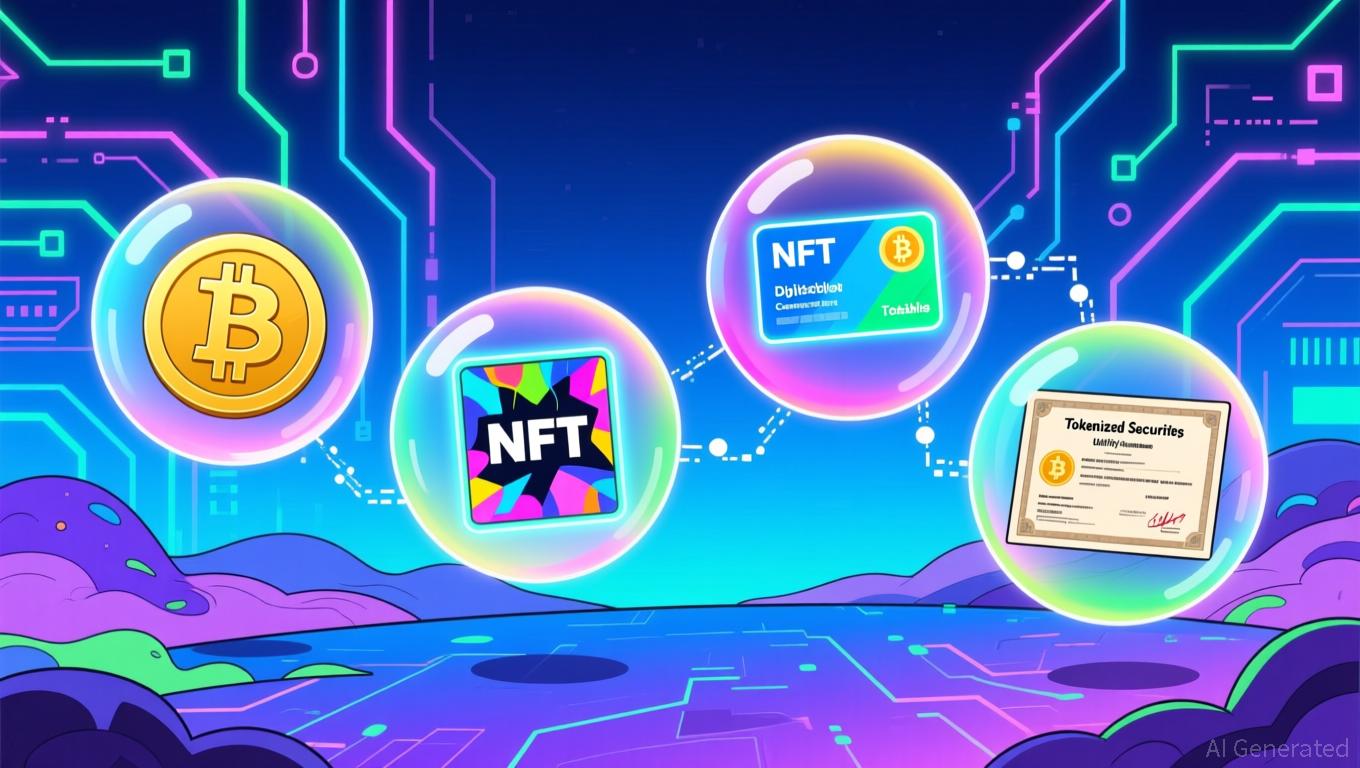SEC's Classification Strikes a Balance Between Fostering Innovation and Safeguarding Investors
- The SEC is advancing a "token taxonomy" to classify crypto assets under securities law, potentially reshaping digital asset regulation. - The framework, rooted in the Howey Test, categorizes tokens into four groups, with most not classified as securities. - Collaboration with Congress aims to resolve jurisdictional disputes via bills like the CLARITY Act, clarifying CFTC and SEC oversight roles. - Nasdaq's tokenized trading platform application aligns with efforts to position the U.S. as a global crypto
The U.S. Securities and Exchange Commission (SEC) is advancing a long-awaited "token taxonomy" designed to clarify how cryptocurrencies are treated under securities regulations, a step that could reshape digital asset oversight. Chair Paul Atkins introduced the proposal at the Federal Reserve Bank of Philadelphia's Fintech Conference, stressing that the framework is based on the Howey Test—a 1946 Supreme Court decision used to determine what constitutes an investment contract, according to a
Atkins explained that digital commodities associated with decentralized networks, collectibles such as NFTs, and utility tokens like memberships or event tickets would be excluded from securities regulation, according to the

This initiative is part of a broader push to update crypto regulation, including the SEC's "Project Crypto," which is intended to simplify compliance for both developers and investors, according to a
At the same time, the SEC is working more closely with Congress. Several legislative proposals, including the House-approved CLARITY Act and various Senate bills, aim to clarify the regulatory boundaries between the SEC and CFTC regarding digital assets, as reported in a
This regulatory evolution is also driving innovation in the market. Nasdaq has recently filed a pioneering application with the SEC to create a tokenized trading platform, which would enable securities to be settled via blockchain, as outlined in a
Atkins made it clear that the introduction of the new taxonomy does not mean enforcement will be relaxed. "Fraud is fraud," he asserted, reaffirming the SEC's dedication to addressing wrongdoing, according to a
As the SEC works to finalize its new guidelines, industry participants are watching closely to see how the taxonomy will interact with upcoming laws and market changes. With Congress targeting the passage of comprehensive crypto legislation by the end of 2025, according to a
---
Disclaimer: The content of this article solely reflects the author's opinion and does not represent the platform in any capacity. This article is not intended to serve as a reference for making investment decisions.
You may also like
PrizePicks Integrates Fantasy Sports with Prediction Markets Through Blockchain Collaboration
- PrizePicks partners with Polymarket to integrate blockchain-based prediction markets into its fantasy sports app, expanding revenue streams and user engagement. - The collaboration leverages Polygon blockchain and CFTC-regulated contracts, enabling U.S. users to wager on sports, entertainment , and cultural events with federal compliance. - Industry trends show prediction markets as a complementary revenue model, with competitors like Flutter and Onyx Odds entering the space amid regulatory shifts. - Cha

Bitcoin News Today: Bitcoin Holds $94K Level: Bulls Struggle to Defend Amid Rising Bearish Outflows
- Bitcoin tests $94,000 support amid volatile swings driven by mixed institutional demand and macroeconomic uncertainty. - ETF outflows ($866M) and bearish technical indicators highlight fragile investor sentiment despite short-term RSI divergence. - Analysts split on $100,000 threshold viability as LCPC AI notes growing DeFi/AI interest while Saylor predicts BTC outperformance. - Macroeconomic risks persist with government reopening potentially triggering data-driven volatility and unresolved fiscal issue

Bitcoin Updates Today: With Bitcoin Facing Decline, Will Layer Brett's Mixed Approach Endure the Downturn?
- Bitcoin's price fell below $100,000, triggering market fears and driving investors toward altcoins like Layer Brett (LBRETT). - LBRETT, an Ethereum Layer 2 meme coin with 587% staking rewards, raised $4.44M in presale by combining meme appeal with scalable infrastructure. - Analysts highlight LBRETT's decentralized governance and low-cost transactions as advantages over speculative coins like Dogecoin amid bearish conditions. - Technical indicators suggest Bitcoin could rebound toward $106,453 or face de

Community colleges are becoming more attractive as students place greater importance on cost rather than reputation
- Chris Tomasso, CEO of First Watch , advocates for community colleges as a cost-effective alternative to traditional universities, emphasizing practicality over prestige. - Rising student debt and tuition-free programs in 30+ states drove a 4% 2025 community college enrollment increase, outpacing university growth. - For-profit institutions like Legacy Education saw 38.5% revenue growth from enrollment surges, while Stride Inc. faces lawsuits over alleged enrollment fraud and declining student numbers. -
